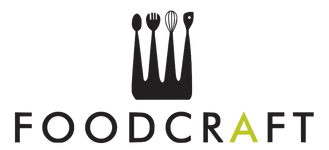
Why is Dairy Bad ? What Dairy Products Should We Choose?
![The Simpsons in the Got Milk? campaign, 1996. [Photo: courtesy of America’s Milk Processors]](https://cdn.shopify.com/s/files/1/0735/9163/files/got_milk_ads_1_480x480.jpg?v=1658372257)
The Simpsons in the Got Milk? campaign, 1996. [Photo: courtesy of America’s Milk Processors]
Do you remember the "got milk?" ad campaign that launched in 1993?
Just like that campaign, we’ve been told over and over again that dairy is a great source of calcium; that milk makes healthy bones and we should drink it daily. But we are starting to learn more about the truth of dairy.
As we covered in our blog "Why Are We Addicted to Dairy?" we learnt that cheese has addictive components, but what the heck? Why are cheese and dairy so demonized? What really is so wrong with dairy? It has been consumed for centuries and our ancestors were perfectly fine, if not thriving on it.
Was that on your mind too? It's definitely on mine every-time I face a beautiful plate of cheese and here's the short answer to that question:
(in most cases) we are not eating the same cheese that our grandparents were eating. Period.
Just the way the dairy industry has become a milk "factory" rather than a family farm, the industrial scaling of milk production has made dairy an inflammatory product, along with the amount that we can consume these days (because it is affordable and available!) is creating a "dairy overload".
The 4 dairy compounds you want to pay attention to:
When dairy is labeled "bad", it's mostly because of these 4 things.
Lactose - the sugar that’s in dairy milk. People with lactose intolerance don’t have enough lactase, the enzyme that breaks down lactose so that we can absorb it.
Casein - the protein found in dairy milk. Also gives milk the white color. It is digested very slowly and can be a stress (inflammatory) to your digestive system. Studies have shown that about 50% of gluten sensitive patients have a sensitivity to casein as well. As we've already covered, it can be addictive too.
Hormones - Some milk products contain rbGH (sometimes called rbST), a synthetic recombinant bovine growth hormone given to cows to help them make more milk. There is a concern that this can increase the risk of prostate and breast cancers, early menstruation and breast development in young girls and rapid weight gain.
Antibiotics - Just like humans, if cows get infections, they get treated with antibiotics. With the size of the herd increasing with the factory farms, to maintain the health of the livestock, the use of antibiotics has become the normal practice. Antibiotics residues can cause health issues, for example, allergy in sensitive people. Consumers often have allergy caused by penicillin, bone marrow aplasia caused by chloramphenicol, ototoxicity, and other problems. Some also point out that the actual antibiotics in milk are not that dangerous, but the antibiotic resistance they cause is. Either way, better not to have this in our milk.
Why You Should Stop Eating Most Dairy
"Cow’s milk from conventionally raised cattle contains dozens of reproductive hormones, allergenic proteins, antibiotics, chemicals, inflammatory compounds, and growth factors, some of which are known to promote cancer. While humans are the only species that continue to drink milk after weaning, we have no biological requirement for this food. Moreover, the milk we drink today is not what our grandparents drank." - From Dr. Mark Hyman "Why You Should Stop Eating Most Dairy"
Watch Mark's video to learn why we should avoid almost all dairy. He also talks about some of the popular myths about dairy, the types of dairy that are okay to eat, and much more.
If you are already familiar with the side effects of dairy, you might want to jump to the part at 30:25 where Mark talks about if you are to have dairy, what dairy will be the best option and also touches on products.
The 3 REASONS You Should AVOID DAIRY At All Costs! | Mark Hyman
Should I go dairy free?
Unless you are consuming pasture-raised, traditionally produced dairy products, why not try eliminating dairy for 14 days and see what happens. You might notice some "discomforts" that you never thought was related to dairy, start to melt away. Don't worry, we can survive without dairy for a few days for sure :)
In the next blog, we will talk about the milk alternatives we have to dairy (Yes the plant milks!).
SUMMARY
Is cheese addictive?
Turns out that there is no scientific reason for cheese to be addictive. This has a lot to do with casein: the protein in milk. When cheese is formed, the casein gets even more concentrated so you could say that cheese usually has more casein than milk.
So, is casein addictive?
It is actually the smaller compounds called casomorphins that is causing the addiction. Yes, it's called ceso'morphins', just like the drug.
When you digest casein, your body breaks it down into smaller compounds called casomorphins and this small chemical can cross the blood-brain barrier and attach to dopamine receptors in your brain. This causes your brain to release dopamine, a neurotransmitter related to feelings of pleasure and reward.
On a side note, wheat has the same addictive effect with gluten, the protein in wheat. Gluten is broken down into a compound called gluteomorphin. No wonder you are addicted to bread and pasta! It's because of the gluteo'morphin'!
What are the factors in modern milk that are causing health issues?
The key words are these 4 items.
- Lactose
- Casein
- Hormones
- Antibiotics
Try The Alternatives
SHOP A2 casein products
SHOP sheep
SHOP goat milk

發表評論